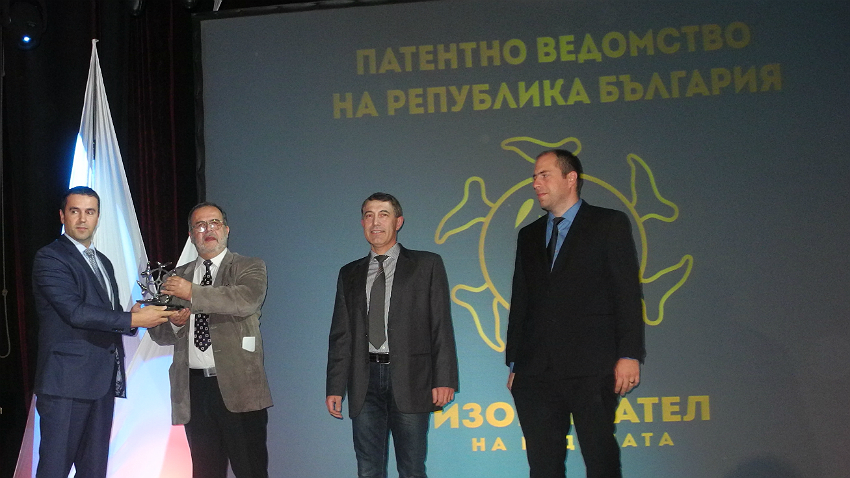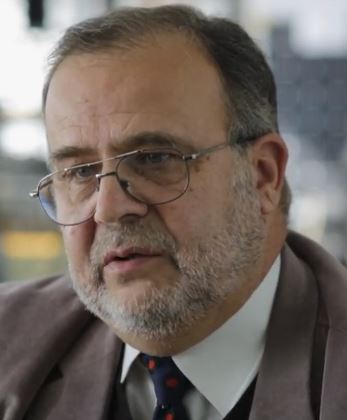Mankind develops quickly, life changes and innovations play a key role in that process. They represent the progress of human civilization. Bulgaria has a huge contribution to that process. Today, many renowned Bulgarians make a series of inventions, which contribute to the development of various fields. Unfortunately, few of those Bulgarians live in their motherland. The money allotted to science and innovations in particular is meager and it is almost impossible to benefit from the EU programmes such as Horizon 2020, because of the cumbersome administrative procedures.

The Inventor of the Year annual awards, however, proves that the Bulgarian scientists do not give up, although they face many difficulties. Professor Vladimir Lazarov and the members of his team Associate Professor Dr. Zahari Zarkov, Associate Professor Dr. Ludmil Stoyanov and Engineer Dimitar Spirov from the Electrical Engineering Department with the Technical University of Sofia, won this year's prize in Electrical Engineering and Electronics category for their invention named System for Management of the Output Power of a Photovoltaic System. Professor Lazarov told Radio Bulgaria details about that system:

The innovative spirit is not typical of all people. It is a result of many efforts, a strong will for development and change and a bit of talent and artistic inspiration, Professor Lazarov contends. According to the EU statistics, Bulgaria is among the EU countries with poorest indicators with regard to technical progress and innovations:

“The current success is rather due to the momentum of a generation, which is approaching the end of its active career. It is not easy to deal with science. It requires a lot of efforts and highly-qualified people. The number of experts in that country has been dwindling recently. The young Bulgarians are not motivated to work in that field for several reasons: the salaries are meager and the link between high schools and universities is weak. Most young Bulgarians are addicted to the Internet and the demographic crisis in Bulgaria is severe. As a result, we are witnessinggrowing profanisation in that country. The policies in science and university education are unsuccessful. The current policy boils down to redundancies, chaotic establishment of universities and absorption of EU funds, which are not always spent purposefully. The institutions do not benefit from the expert potential of the local scientists. The authorities have not developed a list of priorities. They haven't made the right analysis and have not taken adequate decisions. There is a severe managerial deficiency in the country's science and education. However, we should be more optimistic and believe that things will change for the better. Let us wish ourselves happy Christmas holidays.”
Georgi Todorov, Borislav Romanov, Konstantin Kamberov, Velichko Peykov and Nikolay Ganchev were awarded in the Machine-Building and Construction category. They invented a vibrating tool for hand-drilling electrical instruments with resonant frequency. Emilia Mirkova and Olya Karadzhova were awarded in the Chemistry and Bio Technologies category for their Trichoderma Koningii Oud - a hyperparasitic fungus which is used for the manufacture of substances against phytopathogenic fungi in greenhouse crops.
English version: Kostadin Atanasov
Three-time world champion and Olympic weightlifter Carlos Nasar will be holding a special event with the Bulgarian community in London on 23 November. According to the organisers, it will be an open conversation in which Nasar will discuss his journey..
On 16 November, we celebrate Caritas Day, when we honour the Catholic Church’s charity organisation that brings hope to those in need through care and acts of mercy . It reminds us that financial gain is not what matters most. What truly matters is..
The first museum of investment gold is welcoming visitors in Plovdiv who want to learn more about the history of money and its connection to gold – from the birth of gold, its cosmic origin, and its journey to Earth, to how this precious metal has..

+359 2 9336 661
